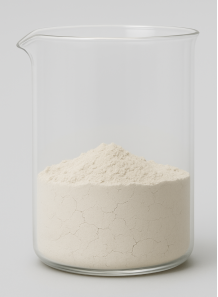Pure-CAPE™ (95%, Caffeic acid phenethyl ester)
Anti-inflammatory and Antioxidan, UV Protection and Anti-photoaging, extracted from Propolis
Cart
No products
No products

Anti-inflammatory and Antioxidan, UV Protection and Anti-photoaging, extracted from Propolis
Caffeic Acid Phenethyl Ester (CAPE), a natural compound derived from propolis, exhibits a range of pharmacological properties beneficial for topical application
1. Anti-inflammatory and Antioxidant Properties: CAPE has been recognized for its anti-inflammatory and antioxidant effects. A study published in the International Journal of Oral Science demonstrated that CAPE protects against oxidative stress and dampens inflammation via the heme oxygenase 1 (HO1) pathway. This was observed in preclinical models where CAPE protected against ligature-induced periodontitis and systemic bone loss by cortisone, supporting bone defect healing. The study concluded that CAPE exerted its antioxidative effects through the Nrf2-mediated HO1 pathway and its anti-inflammatory effects through NF-κB, highlighting its potential in periodontal disease treatment[3].
2. UV Protection and Anti-photoaging: Another study, published in the International Journal of Molecular Sciences, investigated the effects of CAPE on UV-induced MMP-1 expression in human skin. Chronic sun exposure, which can lead to distinct histone acetylation changes in human skin, is associated with the aging process. CAPE was found to inhibit UV-induced MMP-1 expression by targeting histone acetyltransferases, suggesting its role in preventing the degradation of collagen and the extracellular matrix in the skin. This indicates CAPE's potential as a protective agent against UV-induced skin damage and photoaging[5].
These studies underscore CAPE's promising topical benefits, particularly its anti-inflammatory, antioxidant, and anti-photoaging properties, making it a valuable component in skincare formulations aimed at protecting and repairing the skin.
Citations:
[1] https://onlinelibrary.wiley.com/doi/10.1002/ptr.7707
[2] https://www.sciencedirect.com/science/article/pii/S1756464623002372
[3] https://www.nature.com/articles/s41368-018-0039-5
[4] https://www.sciencedirect.com/topics/medicine-and-dentistry/caffeic-acid-phenethyl-ester
[5] https://www.mdpi.com/1422-0067/20/12/3055
Usage: For all kinds of cosmetics
Mixing method: Mix in ethanol
Usage rate: 0.05-0.1%
Product characteristics: light colored powder
Solubility: Limited solubility in ethanol (about 1%)
Storage: For long-term storage Store in the refrigerator. Temperature between 4 °C -8 °C At least 24 months old
INCI Name : Caffeic Acid (Phenethyl Ester)
| Mechanism | - |
| Appearance | - |
| Longevity | - |
| Strength | - |
| Storage | - |
| Shelf Life | - |
| Allergen(s) | - |
| Dosage (Range) | - |
| Recommended Dosage | - |
| Dosage (Per Day) | - |
| Recommended Dosage (Per Day) | - |
| Mix Method | - |
| Heat Resistance | - |
| Stable in pH range | - |
| Solubility | - |
| Product Types | - |
| INCI | - |